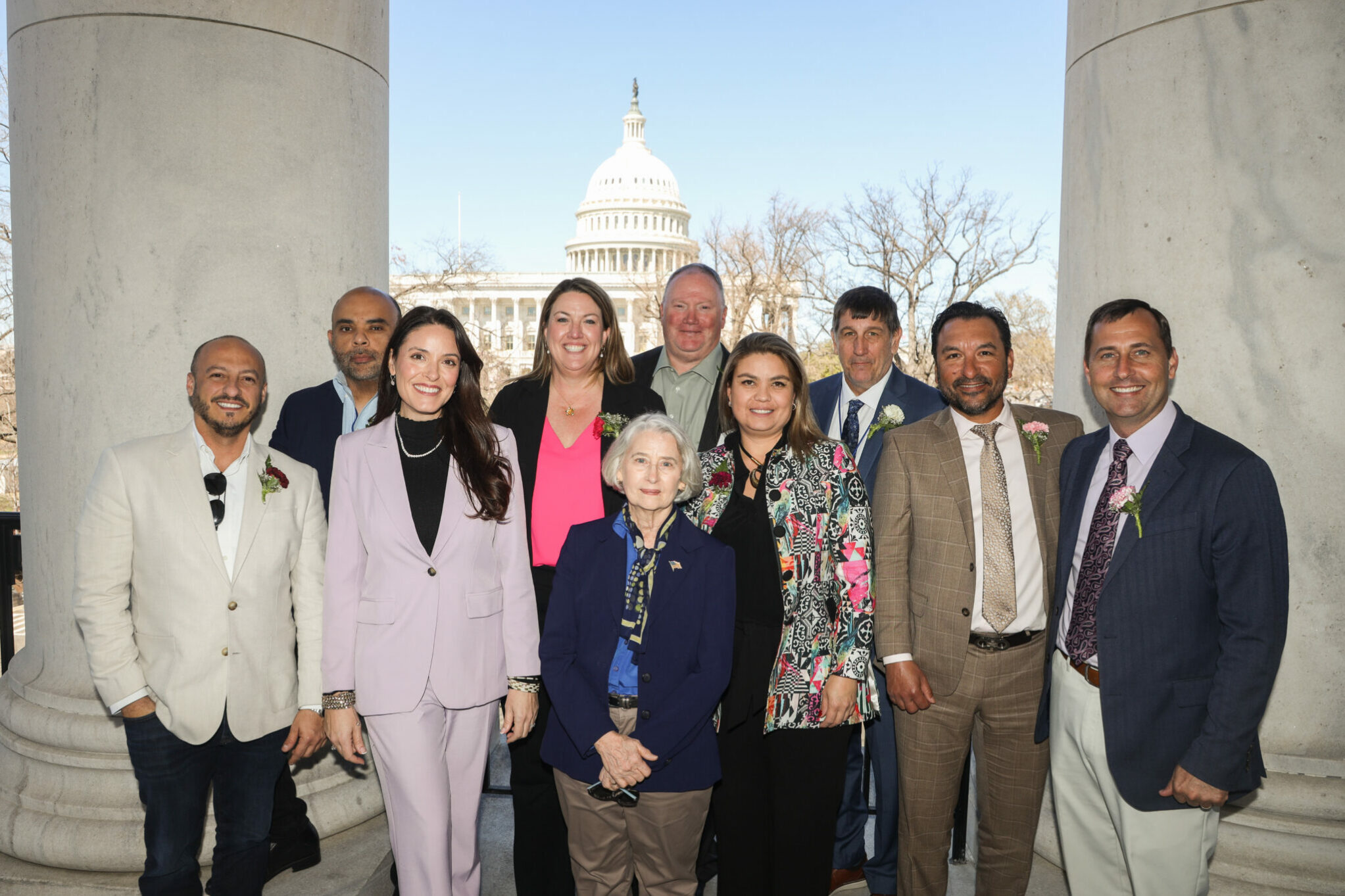
The Senate version of the Farm Bill includes language updating a law that protects the intellectual property of floral industry breeders. The provision was also in the House version of the bill which means it is “a virtual certainty that the final bill, when passed, will include the language,” said Shawn McBurney, the Society of American Florists’ senior director of government relations.
The provision is a win for the floral industry, including SAF, whose members have advocated for the important updates on Capitol Hill, said Jamie Kitz of Sakata Inc. in Morgan Hill, California.
“We are elated the U.S. Plant Variety Protection Act expansion is now in both the House and Senate Farm Bills,” said Kitz, a member of SAF’s Growers Council who lobbied on Capitol Hill in support of the revised language.
“Providing this additional protection for breeding innovation contributes to the health and growth of our industry and brings the U.S. in line with other countries for plant breeding protection,” Kitz added.

Dr. Marvin Miller, AAF, SAF Board of Directors
Dr. Marvin Miller, AAF, of Ball Horticultural Company in West Chicago, Illinois, and a member of SAF’s Board of Directors, agreed, adding that the changes will encourage and protect more innovation among breeders, to the benefit of the growers, wholesalers and retailers.
“New varieties are the lifeblood of the plant breeding industry,” he said. “To keep the incentives in place and the new variety pipelines flowing, breeders must have protections for their innovations. The changes proposed in the Farm Bill to the US Plant Variety Protection Act secure these protections.”
The U.S. Plant Variety Protection Act or PVPA, was enacted in 1970 to protect the intellectual property of breeders not only of floral varieties but also other agricultural products. The act remains crucial to the growth of America’s floriculture industry, said McBurney.
“The law was amended in 1994 to add protections for creators of plant varieties from being exploited by essentially derived varieties — mutations or sports of protected varieties and varieties that have minor or inconsequential changes in relation to the initial variety,” he explained. “However, under the PVPA plant variety protection is currently limited to sexually reproduced seed varieties.”

Jamie Kitz, SAF Growers Council
Since the PVPA was last amended, development of new plant varieties using conventional breeding methods has given way to advanced technological methods which are asexual in nature.
“Because the PVPA does not address asexual reproduction, EDVs obtained from asexually reproduced plants can be brought to market very quickly by an unauthorized party who takes a patented plant variety and induces a sport or mutation through plant radiation or other genetic process,” McBurney said.
SAF, AmericanHort and the American Seed Trade Association worked together to convince lawmakers to include amended language in the bill, noted Kitz.
“It has been a true synergy of efforts from our horticulture trade organizations to bring this update to fruition,” she said.
The Senate is expected to begin consideration of the Farm Bill this month. The House is also working to get its version to the floor. Look for additional updates in SAF publications.






